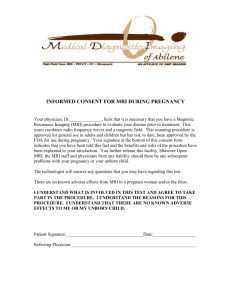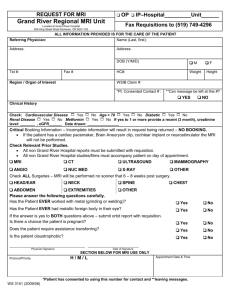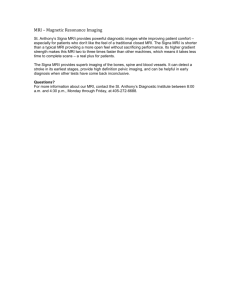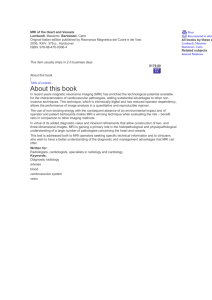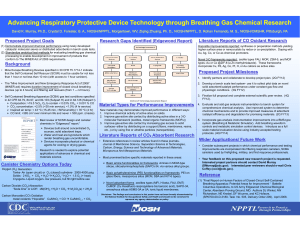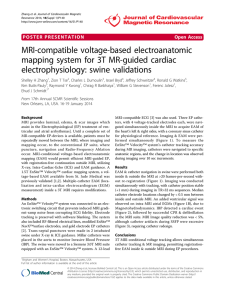Document 10525014
advertisement
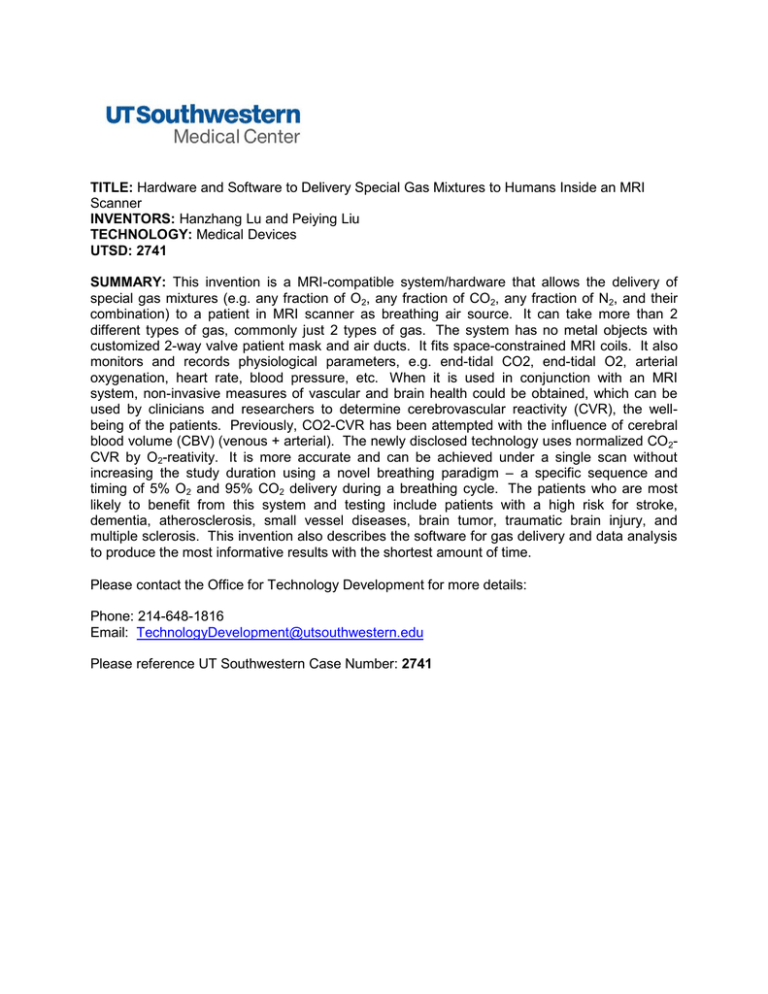
TITLE: Hardware and Software to Delivery Special Gas Mixtures to Humans Inside an MRI Scanner INVENTORS: Hanzhang Lu and Peiying Liu TECHNOLOGY: Medical Devices UTSD: 2741 SUMMARY: This invention is a MRI-compatible system/hardware that allows the delivery of special gas mixtures (e.g. any fraction of O2, any fraction of CO2, any fraction of N2, and their combination) to a patient in MRI scanner as breathing air source. It can take more than 2 different types of gas, commonly just 2 types of gas. The system has no metal objects with customized 2-way valve patient mask and air ducts. It fits space-constrained MRI coils. It also monitors and records physiological parameters, e.g. end-tidal CO2, end-tidal O2, arterial oxygenation, heart rate, blood pressure, etc. When it is used in conjunction with an MRI system, non-invasive measures of vascular and brain health could be obtained, which can be used by clinicians and researchers to determine cerebrovascular reactivity (CVR), the wellbeing of the patients. Previously, CO2-CVR has been attempted with the influence of cerebral blood volume (CBV) (venous + arterial). The newly disclosed technology uses normalized CO2CVR by O2-reativity. It is more accurate and can be achieved under a single scan without increasing the study duration using a novel breathing paradigm – a specific sequence and timing of 5% O2 and 95% CO2 delivery during a breathing cycle. The patients who are most likely to benefit from this system and testing include patients with a high risk for stroke, dementia, atherosclerosis, small vessel diseases, brain tumor, traumatic brain injury, and multiple sclerosis. This invention also describes the software for gas delivery and data analysis to produce the most informative results with the shortest amount of time. Please contact the Office for Technology Development for more details: Phone: 214-648-1816 Email: TechnologyDevelopment@utsouthwestern.edu Please reference UT Southwestern Case Number: 2741
